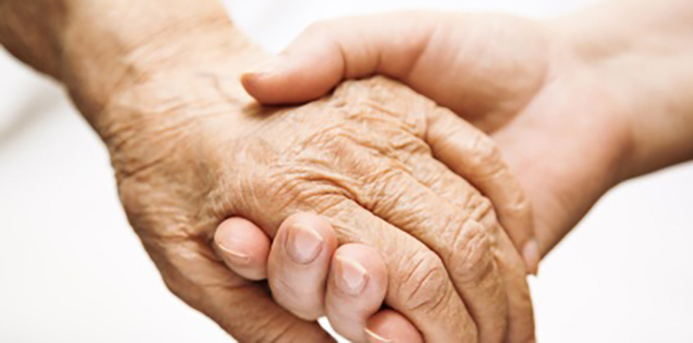Alzheimer’s turned my grandma Reva into a shell of the warm, kind person she once was.
It started when she had trouble forming full sentences. And now, the woman who once delighted in the company of her large family has lost all ability to speak.
There’s nothing that can be done for my grandma—there’s no cure for Alzheimer’s, and no putting the brain back together once the disease has taken hold. And, sadly, millions of families are going through the same burdensome loss—and many more will soon follow.
I recently spent 3 days learning about Alzheimer’s from national experts in Washington, D.C., as part of a National Press Foundation fellowship for journalists. Here are a few key things I learned.
1. The problem is about to get a whole lot bigger.
The longer you live, the greater chance you have of getting Alzheimer’s—your risk doubles every 5 years beyond age 65. Roughly half of people who live to age 85 will develop Alzheimer’s.
And, starting in January 2011, the first baby boomers start turning 65. Many of the 78 million are expected to live to 85, so it’s estimated that the number of Alzheimer’s patients will double or triple in the coming decades, from 5.3 million total now to somewhere between 11 and 16 million, in people over age 65, by 2050.
For ways to get involved and support current Alzheimer’s legislation in Congress, click here.
2. Prevention isn’t a joke—and playing Scrabble doesn’t cut it.
It’s easy to have a fatalistic attitude about Alzheimer’s, since we don’t know exactly how people get it, and so many people are likely to be diagnosed. But remember that diabetes, cardiovascular disease and head injuries have all been linked with an increased risk of Alzheimer’s. So, what can you do to prevent the disease?
A Mediterranean diet and physical activity are associated with a lower risk of Alzheimer’s, according to Laurie Ryan, Ph.D., program director for Alzheimer’s Disease Clinical Trials at the National Institute on Aging, part of the National Institutes of Health. Exercise, in particular, is hugely important, as it’s been shown to increase brain volume and activity. So if you missed your morning workout today, be sure to get out there tomorrow!
3. The earlier the intervention, the better.
If you have a family member who you suspect has Alzheimer’s (read about the signs here), get that person a doctor—the primary care physician, if they know them well, or a neurologist, Ryan recommends—sooner rather than later. (Your local Alzheimer’s Association can help you find a doctor.) “Denial is one of the biggest impediments,” says Harry Johns, President and CEO of the Alzheimer’s Association.
Even though there’s no cure, and current drug treatments only temporarily slow the symptoms of the disease, an early intervention is always better. Because the drugs slow the symptoms, the earlier they are administered, the more effective they are—giving you at least a little more time with your loved one in a lucid state.
And, as unpleasant as it may be, an early diagnosis gives the patient more time to get his or her affairs in order, designate people to act on his or her behalf, and communicate clear wishes to those people.

